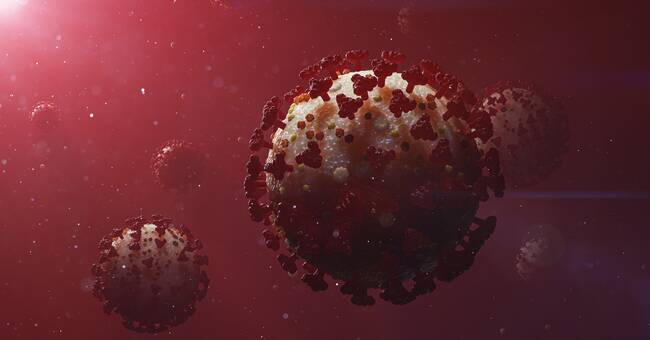The World Health Organization (WHO) has given the new virus variant the name omikron.
The organization says in a statement that preliminary data indicate that omicron entails a higher risk of re-infection than other virus variants.
The WHO has dubbed the new variant omikron and classified it as a "virus variant of particular importance", which is the highest risk class, along with alpha, beta, gamma and delta.
The new mutation was first discovered in South Africa and Botswana.
Further cases have been identified in Hong Kong and Israel.
In Europe, cases have been reported in at least Belgium and the United Kingdom.
Germany also has suspected cases.
By 26 November, more than 100 cases had been identified, the majority of which were in the South African province of Gauteng.
On Friday evening, EU member states agreed to abruptly stop travel from South Africa.
The Union calls on the Member States to "test and quarantine all incoming passengers".
Omikron shows significantly more mutations than previous variants.
According to the Africa Center for Disease Control, just over 30 of these are found in the so-called nail proteins that are used to enter the body's cells and constitute the target for the majority of the vaccine against covid-19.
At the so-called ACE2 receptor, the part of the nail protein that first comes into contact with the cell, the new variant has ten mutations, reports the BBC.
The beta and delta variants have, by comparison, three and two, respectively.
Some of the mutations in the omicron have been detected in previous variants and have been linked to an increased ability of the virus to infect and bypass the immune system.
WHO estimates that it will take several weeks before you have a clear picture of the variant.
The EU's infection control authority ECDC says that there is a "very high risk" that the variant will spread in Europe.
On Saturday, no cases of omicron have yet been discovered in Sweden, but the Swedish Public Health Agency is closely following the development.
The biotechnology company Biontech, which, together with Pfizer, developed the covid-19 vaccine, has initiated studies of how the new mutation reacts to the vaccine.
Biontech expects to be able to present data within two weeks.
Johnson & Johnson and Moderna have both announced that their vaccine may work worse against omicron, but that they are working on developing updated versions - something they say can take 100 days.
We know this about the new virus variant
2021-11-27T16:28:55.762Z

A newly discovered variant of the coronavirus is attracting attention from all sides. We know this right now about the virus and its spread:
Source: svt
